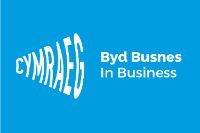This is number three in our series for Welsh language beginners. Here we take a look at some useful expressions and vocabulary for that dreaded day (for them anyway) when your kids head back to school!
Termau Nôl i’r Ysgol – Back to School
| English | Welsh | English Pronounciaton |
| Back to school | Nôl i’r ysgol | Norl-eer-usg-ol |
| Read | Darllen | Dar ll*en |
| Write | Ysgrifennu | Usg-riv-en-nee |
| Homework | Gwaith Cartref | Gwhy-th Car-trev |
| Sandwiches | Brechdanau | Brech**-dan-eye |
| Lunch box | Bocs Bwyd | Box-Boo-id |
| New shoes | Esgidiau newydd | Es-gid-ee-eye ne-with |
| Friends | Ffrindiau | Ffrin-dee-eye |
| Pencil case | Câs Pensiliau | Cahs-pen-sil-ee-eye |
| Register | Cofrestr | Cov-rest-dr |
*no equivalent sound in English – place tongue be-hind the teeth and blow. Alternatively, please ask a Welsh speaker!
**ch as in loch
To view our other Welsh words click here.
Also, learn more Welsh phrases by viewing Quality Cottages’ website here.
A Brief History of Welsh – Introduction
Firstly, Cymraeg, or Welsh, is a language native to the British Isles, originating from a Celtic language spoken by the ancient Britons. Throughout its history, it has faced numerous challenges to its existence.
Welsh is a Brythonic language, meaning British Celtic in origin and was spoken in Britain even before the Roman occupation. Thought to have arrived in Britain around 600 BC, the Celtic language evolved in the British Isles into a Brythonic tongue which provided the basis not only for Welsh, but also Breton and Cornish. At this time in Europe, Celtic languages were spoken across the continent even as far as Turkey.
The Welsh Language Society
Secondly, in the 19th century, the Welsh language still did not benefit from the increasing literacy levels amongst the general public. Whilst children were attending school, Welsh was not part of the school curriculum. English was still the dominant language as it represented administration and business in an era of imperial expansion.
In the 20th century, there was a growing recognition that the Welsh language and Welsh speakers were being discriminated against. For example, in 1942 the Welsh Courts Act formally addressed the issue of defendants and plaintiffs being forced to speak in English and ushered in a new law allowing Welsh to be used in the courts.
By 1967, a very important and crucial piece of legislation was introduced thanks to the campaigning of many individuals including Plaid Cymru and the Welsh Language Society.
This legislation was largely modelled on the Hughes Parry Report only two years earlier which stated that Welsh needed to have equal status to English in the courts, both written and spoken.
Finally, this marked a pivotal moment when the prejudices ushered in during the Tudor period began to be reversed. Today the Welsh language is embraced and spoken at home, in the workplace, in the community and in government. In the 2011 census, over 562,000 people named Welsh as their main language.


